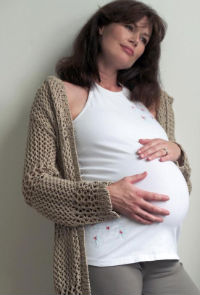Sacramento infertility specialists Dr. Laurie Lovely and Dr. Ernest Zeringue attended the annual meeting for the American Society for Reproductive Medicine, or ASRM in Denver Colorado. This meeting is a gathering point for scientists and clinical practitioners from fertility practices worldwide. Clinics and researchers share their techniques and scientific discoveries for the purpose of advancing the field of reproductive medicine. This sharing of ideas usually serves as valuable means of evaluating developing techniques and technology, and often leads to the introduction of new treatment options for infertility patients.
There have been many exciting advancements in the infertility treatment arena. The two most notable topics are oocyte preservation, or egg freezing for the purpose of saving a woman’s fertility for the future, and pre-implantation genetic diagnosis and screening (PGD/PGS). Both egg freezing and PGD/PGS advancements will offer immediate changes in the way infertility treatments are rendered. California IVF: Davis Fertility Center, Inc. is at the forefront of these new technologic developments as we continue to bring our patents the latest and most advanced options for overcoming infertility.
Pre-implantation genetic screening PGS is used when embryos are tested for the presence of a genetic abnormality such as an abnormal number of chromosomes. Pre-implantation genetic diagnosis, PGD, is used when there is a known risk of a specific genetic disease when there is a family history of a specific genetic disease. PGD is often used to refer to both PGD and PGD services collectively, although this is technically inaccurate. PGD/PGS has been used for several years, but the limitations of the technology and the types of genetic tests available for infertility treatments has been a limiting factor in the success of the testing. High costs of the tests have also limited the use of the testing in addition to in vitro fertilization, IVF.
Recent advancements in PGD/PGS has allowed fertility clinics to move away from FISH and embrace SNP and aCHG for genetic screening of embryos. These newer tests have the advantage over existing FISH technologies in that SNP and aCGH can look at all chromosome pairs. There are 23 pairs of chromosomes with one pair used for sex determination. A test will look for 24 chromosomes, 22 normal pairs of chromosomes plus the X and Y chromosomes which determine if the baby will be a boy or a girl. Testing for X and Y chromosomes has also been useful for gender selection – determining a boy or girl with IVF before the embryo is used to make a pregnancy.
Refinements to the PGD/PGS process were presented at ASRM. These latest changes will likely lead to an increase in the number of PGD/PGS cases performed in the United States. By performing the embryo biopsy on day 5 using a laser and a precision microscope, the genetic test results have a higher prediction rate of a normal pregnancy than a biopsy performed on day 3. Several researchers and infertility clinics reported pregnancy rates as high as 85 to 90% when PGD/PGS was used on a day 5 embryo. While these are early studies and need additional verification, it seems very clear that the future of embryo biopsy and genetic testing is about to make a significant change to the field of in vitro fertilization.
The addition of day 5 embryo biopsy and genetic testing advances our capabilities and improves upon our 5 year experience with genetic testing and embryo biopsy. Having egg freezing capabilities opens the doors for new avenues in donor egg banking, making the process of egg donation and infertility treatments with donor eggs less complicated. Freezing eggs also offers a women the opportunity to save her fertility in the face of cancer treatments such as chemotherapy or radiation therapy. Oocyte cryopreservation will soon offer women the opportunity to preserve their fertility for a later time in life when her own chances of conceiving may be reduced due to the effect of age on egg quality.
Thanks to the scientific community and professional sharing of knowledge and scientific study, ASRM members can remain up to date with the latest changes. California IVF: Davis Fertility Center, Inc. continues to change our practice as new developments become available. To this end, many fertility centers and patients and indebted to the efforts of ASRM. According to the ASRM website, the Vision of the American Society for Reproductive Medicine (ASRM) is to be the nationally and internationally recognized leader for multidisciplinary information, education, advocacy and standards in the field of reproductive medicine. The ASRM is a non-profit organization whose members must demonstrate the high ethical principles of the medical profession, evidence an interest in infertility, reproductive medicine and biology, and adhere to the objectives of the Society.
Dr. Laurie Lovely and Dr. Ernest Zeringue are proud members of ASRM and will continue to leverage the knowledge and research benefits of ASRM to realize the goals and dreams of our patients – having a baby.

